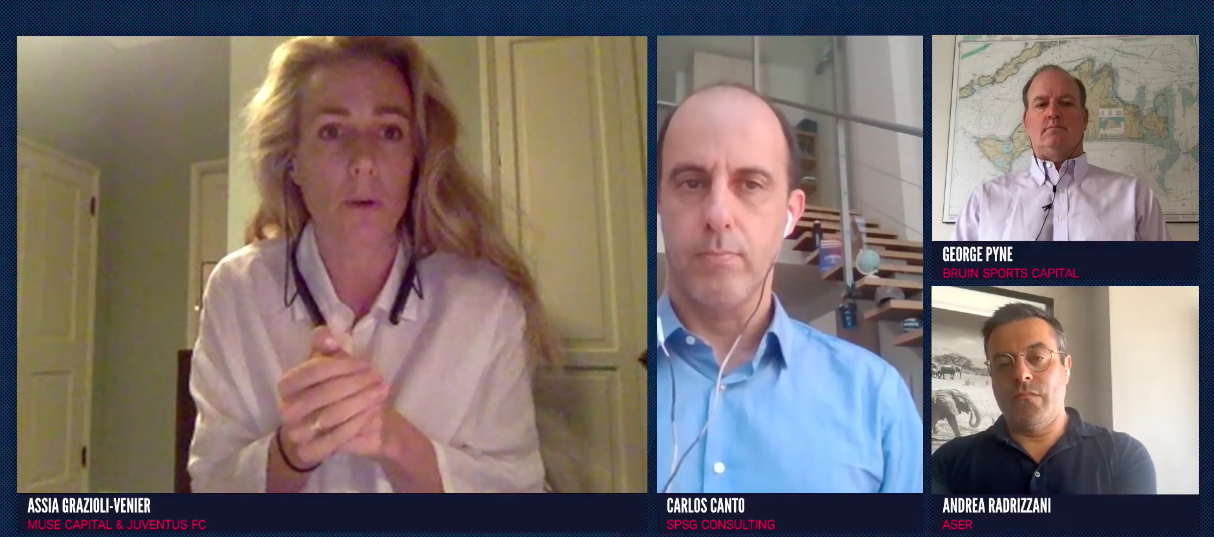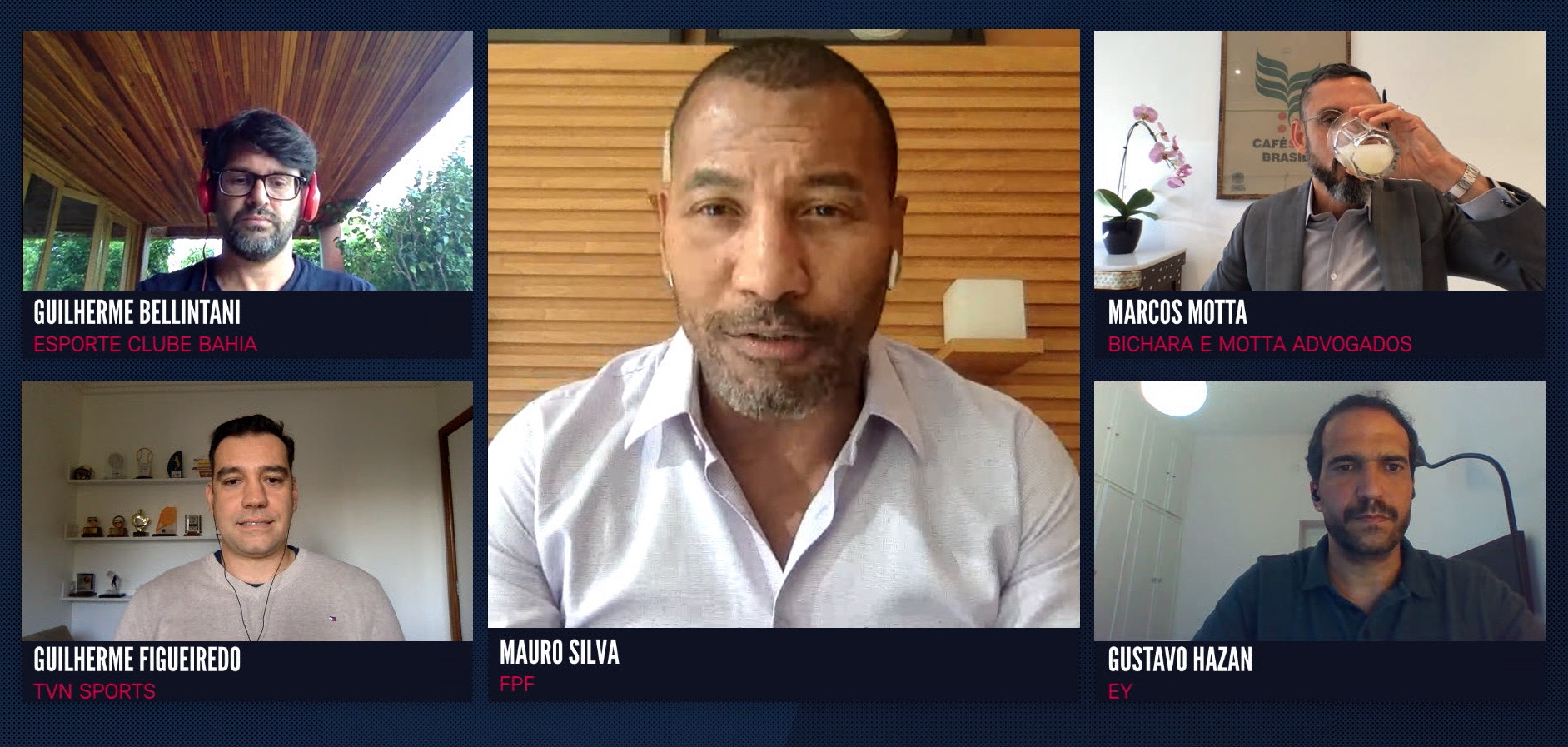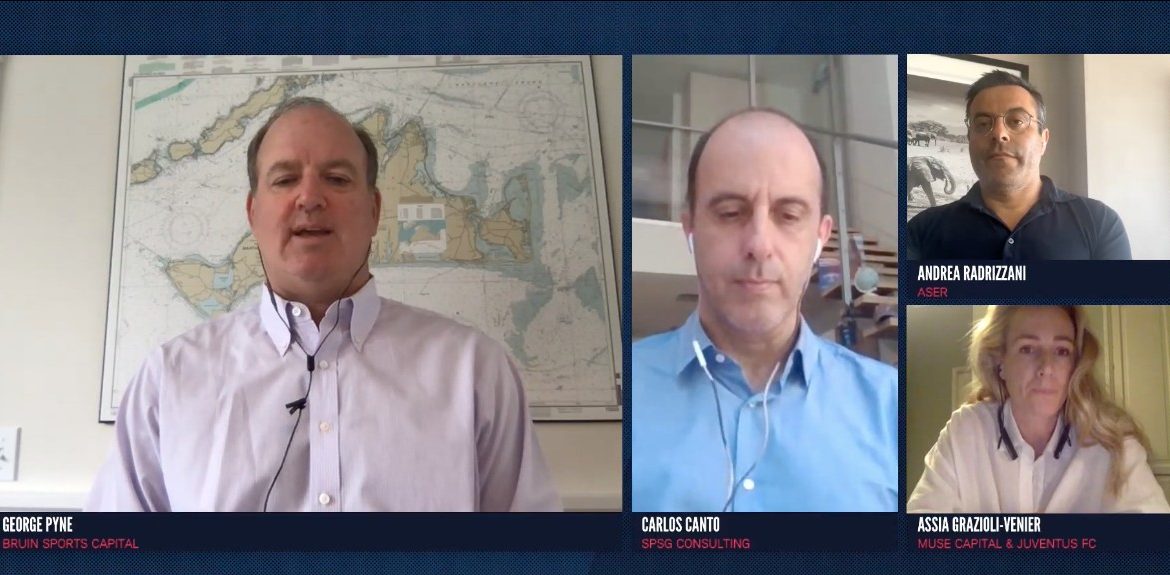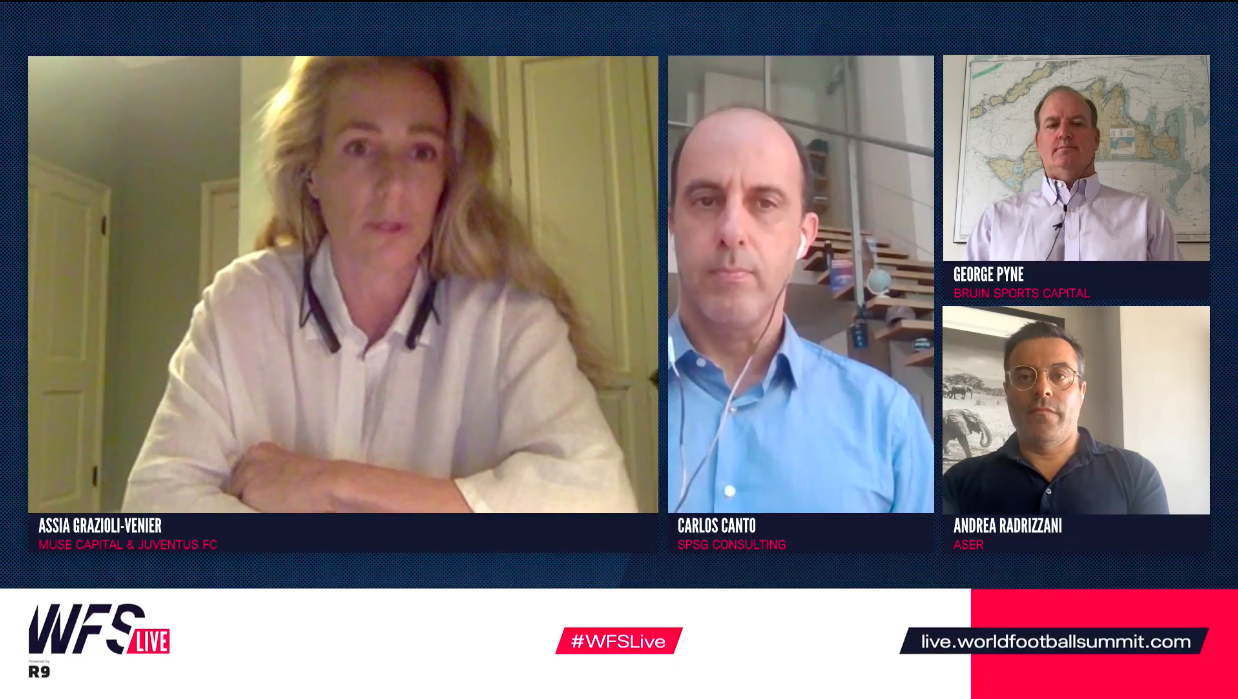Day 2 of WFS Live powered by R9 saw international leading experts engage in fruitful discussions around a wide variety of topics spanning from Asia’s journey te become a global football powerhouse to how Covid-19 will impact investment flows and reshape sponsoring strategies, the need for all sports to have a gaming strategy or the increasingly crucial role of data in all areas of the industry. Here are some of the main highlights:
Assia Grazioli-Venier (Muse Capital and Juventus), on clubs realising they truly are lifestyle brands:
“I think teams need to realise that they truly are a lifestyle brand. Ten years ago, or longer than that, if you said that teams were selling merchandise and selling mugs and pins then you would have said that was crazy. Now, it’s full speed ahead. It’s a strong source of revenue. So, there are still a lot of new opportunities that we can explore.”
George Pyne (Bruin Capital) on why sports will continue to be a great investment:
“Over the long run, sports is going to be a great investment. Long term, there’s nothing like sports. Sports represent who you are and what you stand for and your values. So, there’s nothing like it. Sports brings people together during difficult times for positive outcomes. So, that’s an incredible outcome in a world that is going to be more fragmented from a media standpoint. Sports is one of the few things that you can invest behind that gets you big and passionate audiences.”
Eelco van der Noll (AB InBev), on sponsors demanding more access to content:
“The whole media rights is going to be reset, not only because of new players coming on the scene, like streaming platforms or social media platforms, but also because sponsors like us are demaning more access to content that historically has been reserved or protected by broadcasters. When we work with the likes of LaLiga or the Premier League, as sponsors we expect more access to content. I think that was already in process, but it is being accelerated by this pandemic.”
Ralf Reichert (ESL Gaming), on why every sport needs a gaming strategy:
“All sports need a gaming strategy. It needs to be very varied from the center of what they’re doing. It could be archery, it could be golf, it could be football, but every sport needs a game. Everyone who went to this (the Covid-19 lockdown) prepared had a good outcome. Most of the racing stuff went to online competitions pretty fast… Gaming was the big winner of this and eSports is kind of the logical follower.”
Ashraf Adam (Nelson Mandela Bay Stadium) on the inefficient nature of stadiums:
“Stadiums in nature are inefficient because they cost a lot of money to build maintain and operate. We need to offer activities around them and we’re looking at renewables. What was seen as radical before is now possible.”
Esteban Granero (Olocip), on the crucial role of data in football:
“I think data is part of the daily life of football clubs. I also think that we still have a long path ahead, specially in terms of education. I think that, from a conceptual perspective, it’s important that clubs have professionals capable of understanding the potential of data. Not only to know what sort of data is available, but also how to process it in order for the team to benefit the most.”
Monica Esperidião (Women Experience Sports) on the need to think of women’s football as a business:
“We have to think about women’s football as a business. And we need more people with an interest in women’s football in organizations, clubs, everywhere.”




